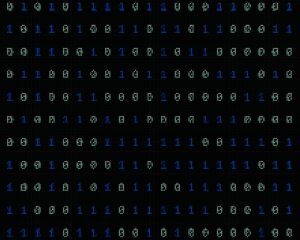
AI agents are poised to revolutionise how people work, fundamentally changing the jobs of every person, including corporate leaders like himself, said Nvidia head honcho Jensen Huang.
While this transformation undoubtedly brings excitement, it also raises valid concerns about job displacement and the need for reskilling, he told an industry audience at a fireside chat at Siggraaph 2024, held earlier this month in the United States.
Speaking with Lauren Goode, a Wired editor, he said the emergence of AI assistants will impact productivity and creativity – qualities that humans have long had an edge over machines.
A case in point: Blackwell, Nvidia’s latest GPUs, was designed with GenAI help. Today, the company’s software developers all use GenAI to design new programs and to debug software.
While Huang admits that AI hallucinations are challenging, he pointed out that breakthroughs in reinforcement learning, guardrails, and retrieval-augmented generation offer promising solutions to improve the accuracy and reliability of AI models.
As these technologies mature, he said, people can expect to see a significant reduction in the instances of AI-generated misinformation.
He also touched on Nvidia’s journey from a relative underdog to a dominant force in the AI computing landscape over three decades.
He realised the importance of real-time video in computer games and developed the tools and products to help game developers do this to generate greater satisfaction from gamers.
On the tremendous amount of energy used for large language model (LLM) computation, he emphasised the significant energy savings achievable through accelerated computing, including graphics processing units (GPUs), compared to traditional CPUs.
Using accelerated computing, he said, can reduce energy consumption by 20 to 50 times while performing the same processing tasks.
At Siggraph, Nvidia unveiled a suite of new GenAI tools designed to revolutionise the creation of 3D worlds and digital twins. These tools improve the way Nvidia integrates GenAI and 3D and virtual world content generation.
Central to the new offerings is Nvidia’s expansion of support for the Universal Scene Description (OpenUSD) standard. By introducing AI frameworks that generate outputs in OpenUSD, businesses can develop sophisticated simulation applications, such as testing environments for robots or digital twins of factory sites.
Nvidia’s new Nim microservices are AI-powered tools to streamline software development services, enabling developers to generate code for 3D assets, search asset libraries efficiently, and validate file compatibility with OpenUSD standards.
Additionally, Nim microservices can also automatically assemble OpenUSD scenes from text prompts and generate physics for frames, making them suitable for simulation.
The company demonstrated this in a video clip, where a child generated 3D worlds and lifelike photos based on text prompts like “build me a tree in an empty field. Build me hundreds of them in all directions”.
To showcase the potential of these tools, Nvidia partnered with Foxconn to build a digital twin of a chip factory using Nim microservices and the Omniverse platform. This digital twin will accelerate industrial manufacturing and the development of autonomous machines.
Nvidia also unveiled OpenUSD connectors for robotics data formats, allowing developers to transfer robot data across OpenUSD-supported applications and conduct simulations or reinforcement learning.
The company also launched tools for streaming large-scale OpenUSD scenes to spatial computing devices like Apple’s Vision Pro headset, enabling users to interact with highly detailed environments on their mixed-reality devices.

Researchers and academicians can use these tools to teach robots to perform certain tasks with the help of the Vision Pro worn by a human trainer. These services and models will support robot makers to quicken the development of humanoid robots.
Nvidia’s efforts align with the broader industry push towards adopting OpenUSD as a universal 3D data interchange standard. By collaborating with companies such as Pixar, Apple, Adobe, and Autodesk, Nvidia is driving the expansion of OpenUSD beyond the entertainment industry.
As the world becomes increasingly reliant on digital technologies, Nvidia believes its new AI tools have the potential to reshape industries by providing the foundation for creating highly accurate and immersive virtual worlds.






